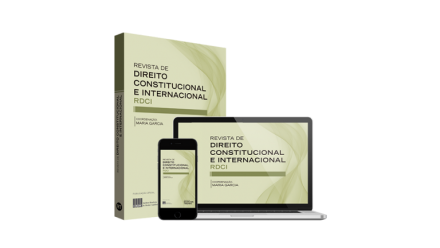SOFT LAW, HARD LAW E A TEORIA DA TRANSNORMATIVIDADE: UM ESTUDO DO DIREITO INTERNACIONAL CONTEMPORÂNEO
Revista de Direito Constitucional e Internacional
SOFT LAW, HARD LAW E A TEORIA DA TRANSNORMATIVIDADE: UM ESTUDO DO DIREITO INTERNACIONAL CONTEMPORÂNEO
Autor Correspondente: S. G. Koutras | [email protected]
Palavras-chave: Direito Internacional - Soft Law - Soft Law - Transnormatividade
Resumos Cadastrados
Resumo Português:
O presente artigo tem por escopo analisar a relação entre o direito interno e externo, com a definição inicial dos institutos de hard law e soft law, tanto no plano doutrinário internacional quanto na visão nacional. Partindo-se desse estudo, busca-se compreender as vantagens e desvantagens de ambos como formas alternativas e como complemento uma da outra. Desta interação objetiva-se demonstrar a dinâmica internacional de ambos os institutos e suas dificuldades, como, por exemplo, de implementação. Por fim, encerra-se com a teoria da transnormativadade como uma possível solução para conflitos entre o direito interno e externo.
Resumo Inglês:
The purpose of this article is to analyze the relationship between domestic and foreign law, with the initial definitions of the hard law and soft law, both in the international and national doctrine. From this study, the article progresses to understand the advantages and disadvantages of both as alternative forms and as complements of one of the other. This interaction aims to demonstrate the international dynamics of both institutes and their difficulties, such as implementation. Finally, we conclude with the theory of transnomativity as a possible solution to conflicts between domestic and foreign law.

